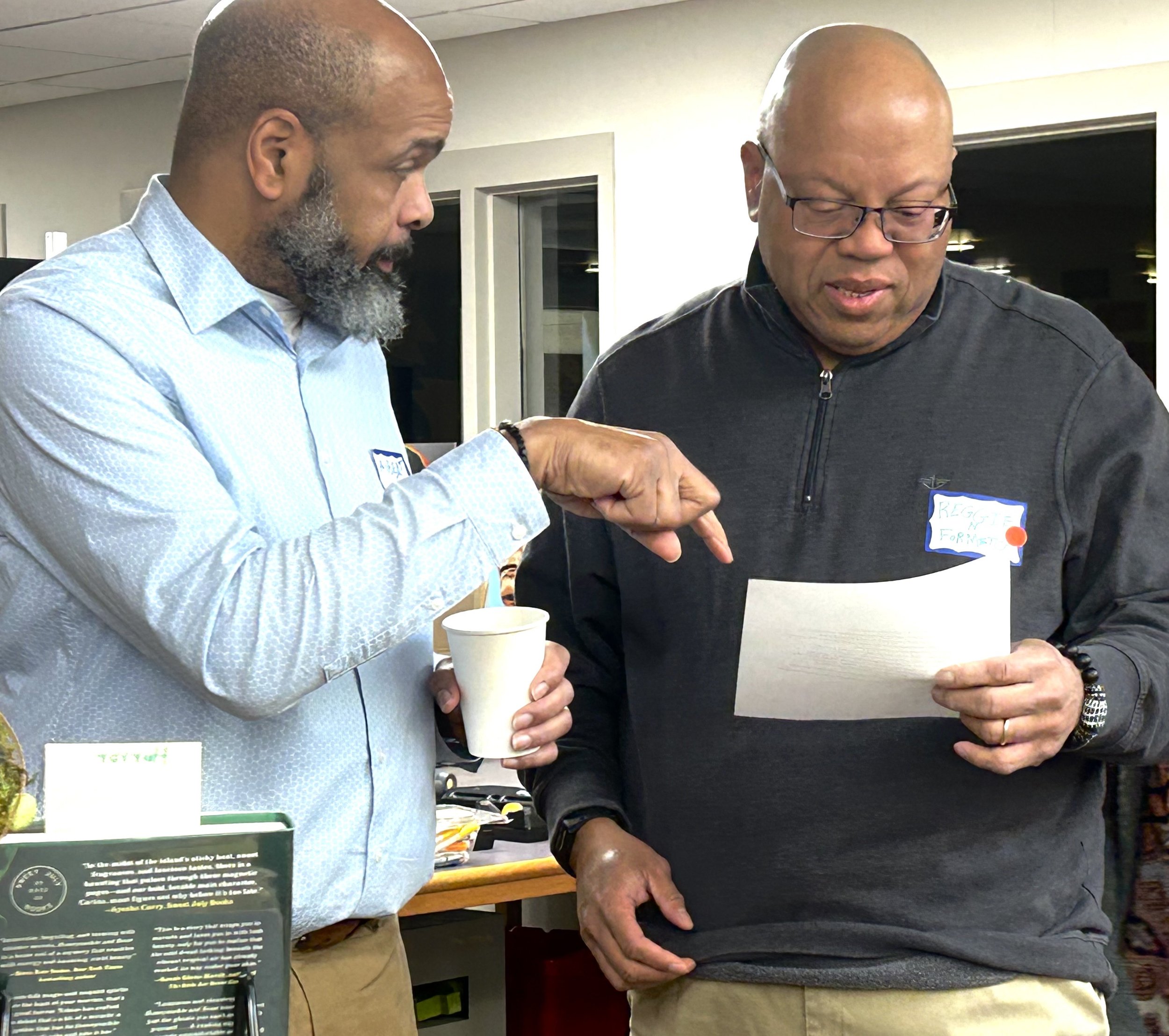Community reflects on METCO student experience during CodeSwitching screening & discussion
On Thursday, April 10, 2025, the Friends of Reading METCO hosted a screening of the award-winning documentary CodeSwitching at the Performing Arts Center at Reading Memorial High School. The screening was introduced by Reginald Nichols, METCO Board Member, and Cindy Marte, interim METCO Director and School Adjustment Counselor, followed by a thought-provoking discussion in smaller groups.
The event brought together educators, students, families, and community members to explore the lived experiences of students participating in the METCO program, which transports students from Boston into suburban districts like Reading to promote educational equity and racial integration.
Photo by RMHS student, Jayus DiCarlo.
About CodeSwitching
Released in 2019, CodeSwitching is an acclaimed documentary that shares highly personal stories from two generations of students who participated in the Boston METCO program. Through their voices, the film explores the tension of striving for academic opportunities while navigating the distinct cultural environments of home and school.
Director of the Office of Equity and Social Justice Albert Pless, left, and METCO Board Member Reginald Nichols, right). Photo by RMHS student, Jayus DiCarlo.
Key takeaways from the screening
Following the screening, participants gathered into smaller groups to discuss the METCO experience and reflect honestly. A few key points stood out:
Early days, late nights: Students in the METCO program begin their day between 5:00 and 6:00 am, boarding buses from Boston to arrive at suburban schools, like those in Reading, before the school day begins. For students who participate in sports or extracurriculars, it can mean arriving home well into the evening, making for long and exhausting days.
Navigating dual worlds: Many students described the feeling of existing between two cultural spaces - home life in Boston and academic life in the suburbs. The experience of code-switching, or adjusting one’s behavior, speech, or appearance depending on the environment, was a common and emotionally complex reality for many.
Gratitude and struggle: While many METCO participants expressed appreciation for the educational opportunities they received, they also shared honest reflections on the mental health challenges they faced - ranging from anxiety and depression to the social strain of not fully belonging in either setting.
Photo by RMHS student, Jayus DiCarlo.
Community discussion
After the presentation, participants broke into small groups to reflect on three discussion questions:
How do you feel after watching the film?
How do cultural identity boundaries shape social and educational experiences in our community?
What’s one next step we could take individually or together to take forward what we learned today?
Photo by RMHS student, Jayus DiCarlo.
Group reflections
The group I participated in shared a variety of personal and powerful reactions:
Emotional impact: Many expressed sadness and empathy for students who experienced racism or exclusion while attending suburban schools. Educators in the group reflected on their own teaching practices and questioned whether they may have unconsciously contributed to these dynamics.
Mental health toll: The documentary highlighted the significant emotional weight carried by many METCO students. Several students in the documentary spoke openly about struggling with depression, anxiety, and in some cases, suicidal thoughts and ideation. These stories deeply moved participants and reinforced the need for stronger mental health support systems.
Classroom dynamics: Teachers noted how their teaching styles shifted when Boston students were present in the classroom - becoming more mindful and intentional. This raised further questions about inclusion and equitable teaching practices.
Is the trade-off worth it?: Some questioned whether the educational benefits of the METCO program outweighed the social and emotional costs. Others were eager to learn more about the experiences of current students and explore how the program could evolve to better support their full well-being.
Building a stronger bridge: A recurring theme was the need for Reading to become more welcoming to Boston families. Participants emphasized the importance of engaging in events closer to Boston and fostering deeper relationships that go beyond the classroom.
As the evening concluded, the message was clear: educational opportunity should not come at the cost of identity, belonging, or well-being. The community’s commitment to continuing the conversation - and acting on what is learned - is essential in creating a more inclusive and supportive environment for all students.
For more information about the METCO program or to get involved, visit Friends of Reading METCO website.
Photo by RMHS student, Jayus DiCarlo.




